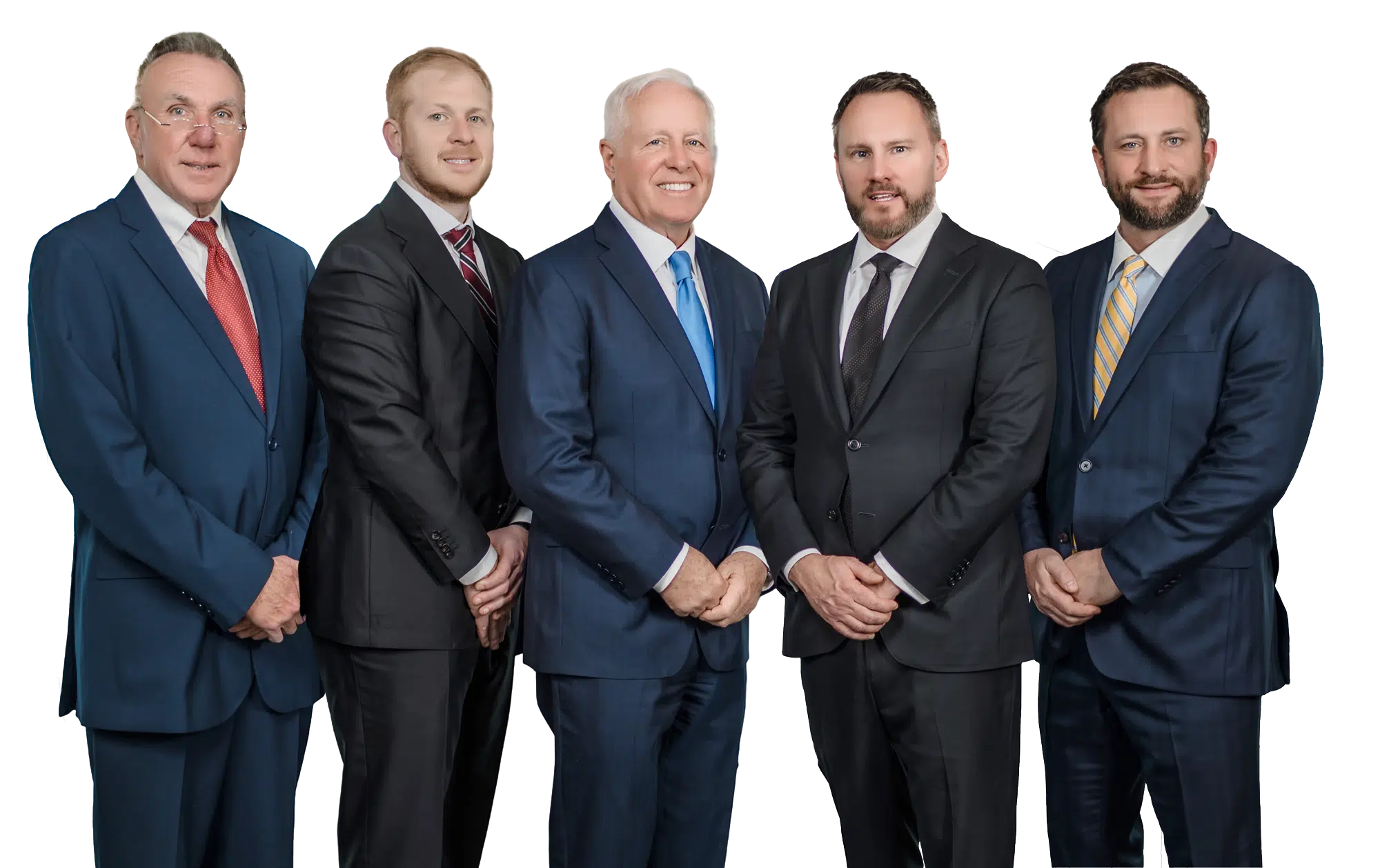Navigating Child Sexual Abuse: A Resource for Survivors and Their Loved Ones
Catholic priests, sports trainers, and public school teachers have all been found guilty of sexually abusing children in the past decade. The trauma of these experiences leaves physical and psychological scars that can permanently change the trajectory of a child’s life.
In recent years, the public has been appalled by reports of sexual abuse in seemingly safe environments, ranging from Olympic training sessions to high school sports teams to Catholic parishes. Parents have become increasingly cautious about where their children go and who they see, frightened by the knowledge that teachers, sports coaches, and trainers have all been accused and convicted of sexually abusing children.
Understanding Child Sex Abuse
Before you can pursue a child sex abuse case, it’s vital that you first understand exactly what the term means. This resource guide for child sex abuse will clarify what constitutes abuse and how you can respond to it.

What Is Child Sex Abuse?
Child sex abuse refers to any sexual activity conducted with a minor. This includes:
- Exposure
- Sexual intercourse
- Fondling or touching
- Masturbation
- Graphic or obscene conversations
Someone who performs one of these acts with a child has committed a serious crime.
How Common Is Child Sex Abuse?
Child sex abuse statistics reveal this type of behavior is frighteningly common. According to the Centers for Disease Control, one in four girls and one in 13 boys in the United States experience sexual abuse during childhood.
The number of children experiencing abuse is likely even higher than these statistics suggest. Among all incidences of sexual violence in the United States, only 21.5 percent of rape or sexual assault victimizations were reported to police in 2021, down from 22.9 percent in 2020.
Where Can Child Sex Abuse Happen?
Child sex abuse usually occurs when an adult holds a position of authority over a child. The abuser uses this power to manipulate the child’s emotions and behaviors when parents are absent.
Cordisco & Saile LLC can seek justice against institutions that have allowed, ignored, or encouraged child sex abuse, including the following:
- Schools
- Churches
- Foster care centers
- Sports leagues
- Youth groups
Within these organizations, teachers, coaches, administrators, clergy members, and troop leaders are potential perpetrators of child sex abuse.
Signs of Child Sex Abuse
Physical indications of abuse may be more readily apparent, but psychological signs are equally as telling. Watch for these common signs of child sex abuse:
- Physical trauma to the genital area, such as bruising or bleeding
- Self-isolation or detachment
- Sudden fear of being apart from a parent or guardian
- Regressing to previously resolved behavior, such as bedwetting
- Reluctance to remove clothing
- Lack of appetite
- Heightened aggression or anger
- Self-harming behaviors, such as cutting
Many of these behaviors are also associated with other types of trauma. Regularly communicate with your child, establish a trusting relationship, and seek therapy to uncover whether child sexual abuse is the source of the problem.

Preventing Child Sex Abuse
The responsibility to protect children from sexual abuse falls to all adults around them, including counselors, teachers, doctors, and parents. You can help protect your child through vigilance and active engagement, including:
- Talking openly in age-appropriate ways about sexual behavior
- Learning about the signs of grooming
- Confirming the institutions your child attends have thorough screening processes for employees
Most importantly, let your child or other children close to you know you can be a safe space for them. Knowing they can discuss uncomfortable behavior they have experienced with you can give them the confidence to come forward and discuss what happened to them.
Long-Term Consequences of Child Sex Abuse
Victims of child sex abuse suffer both immediate trauma and long-lasting psychological and physical effects. Adult survivors of child sex abuse exhibit an array of mental health issues, such as:
- Depression
- Anxiety
- Post-traumatic stress disorder
- Addition and substance abuse
- Disassociation
- Suicidal thoughts
Studies have documented that child sex abuse causes changes to children’s endocrine and immune systems, DNA, and brain development. Girls who are sexually abused might suffer permanent internal damage to their reproductive systems or become pregnant. An abused child might also contract a sexually transmitted disease with lifelong symptoms.
How Common Is Child Sex Abuse?
In addition to overcoming the severe horrors of sexual abuse, many victimized children also become targets for human traffickers who want to sell them as sexual slaves. According to the National Center on Safe Supportive Learning Environments, a history of sexual abuse is one of the primary risk factors for children who become trafficking victims.
Human trafficking rings often seek out vulnerable populations, including children who have experienced sexual abuse. Traffickers lure these children into their grasp by offering protection, love, or understanding. This false sense of security entices a child who feels fearful and alone.
What To Do if You or Someone You Know Has Experienced Child Sexual Abuse
If you or someone close to you has been a victim of child sex abuse, it’s essential to seek assistance from outside organizations. Before you do, have a private conversation with the child to better understand what occurred and who was involved. Remain calm during the discussion, allow the child to speak freely, and clarify they are not to blame.
After your conversation, the next step is to contact the police. Reporting sexual abuse can be frightening and intimidating, so explain to the child the police can protect them from further abuse.
Once the police know the situation, it’s time to contact a knowledgeable and experienced attorney who can guide you as you decide whether to file a civil suit. Child sex abuse attorneys will handle the details of the case with care and compassion, always keeping the victim’s best interests in mind. If you experienced sexual abuse as a child or you suspect a child close to you is being abused, the attorneys at Cordisco & Saile LLC can help you hold abusers and the institutions that enable them accountable. Our Pennsylvania attorneys will approach your case with empathy and understanding, recognizing that pursuing justice in these situations is especially sensitive and challenging.
How Common Is Child Sex Abuse?
Survivors and their families need extensive support to recover from the trauma of sexual abuse. Many organizations specialize in helping victims of child sex abuse, including:
- Rape, Abuse and Incest National Network (RAINN)
- Childhelp
- Enough Abuse Campaign
- Adult Survivors of Child Abuse (ASCA)
- Help for Adult Victims of Child Abuse (HAVOCA)
These groups provide access to crisis hotlines, support networks, educational resources, and mental health treatment providers.
Statute of Limitations for Child Sex Abuse Survivors
In many states, the statute of limitations for a child sex abuse case doesn’t begin until a child reaches adulthood or later.
For example, in Pennsylvania, victims of child sex abuse have until they reach 55 to file a lawsuit. Those who were victims between ages 18 and 24 have until they reach 30 to file suit. However, that law only applies to incidents occurring after December 1, 2019. For child sex abuse that occurred before that date, victims have until they turn 30 to bring their claims.
The statute for criminal charges is age 50, or 32 years past the age of adulthood.
The statute of limitations may differ based on the severity of the sexual act. Some states have no statute of limitations on rape but do limit the time to report an incidence of sexual assault. Contacting a child abuse attorney is the best way to ensure you file your case before the statute of limitations runs out.
Please fill out the quick contact form below for a fast and free case consultation. We will contact you within 24 hours!
"*" indicates required fields
